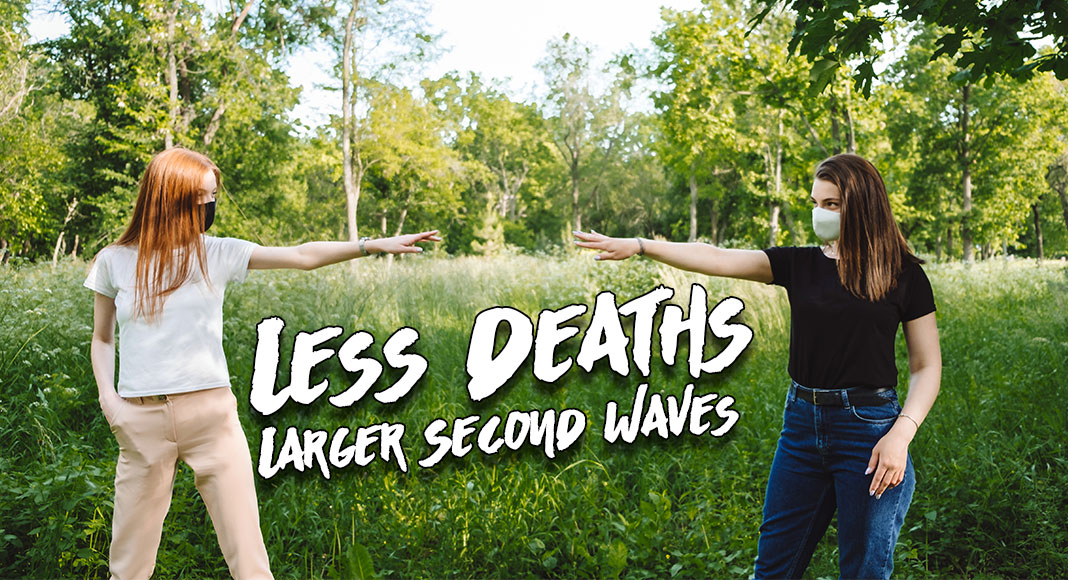
Mega Doctor News
By Binghamton University, State University of New York
Newswise – BINGHAMTON, N.Y. – Early social distancing results in smaller death tolls, but leads to larger second waves, according to research led by faculty at Binghamton University, State University of New York.
When COVID-19 arrived on U.S. shores in early 2020, political leaders and public health officials had to make educated guesses. Was a complete lockdown the right move? Were there less severe options that hold back infections without everything going remote?
Now that COVID cases are spiking again, hindsight can help to guide what works best to stop the spread of the deadly virus. That’s where researchers like Binghamton University Assistant Professor Zeynep Ertem come in.
Ertem — a faculty member in the Thomas J. Watson College of Engineering and Applied Science’s Department of Systems Science and Industrial Engineering — studies public health optimization and infectious disease modeling, two areas that provide much insight into fighting the coronavirus.
In her latest research, Ertem worked with colleagues Özgür Araz (associate professor at the University of Nebraska – Lincoln) and Mayteé Cruz-Aponte (assistant professor at the University of Puerto Rico – Cayey) to assess the effectiveness of early social-distancing measures in communities with different population characteristics, such as urban vs. rural areas.
“Obviously, we cannot treat all places the same,” she said. “Manhattan is not the same as Nebraska, for instance, or Houston is not the same as Los Angeles. We have different dynamics around the U.S., so diseases spread differently in places using more public transportation rather than people using their own cars and staying away from each other.”
Combining simulation models with data collected during the early months of the pandemic, Ertem and her collaborators tried various strategies to gain time by using those social-distancing interventions until a mass vaccination strategy begins.
“We wanted a more systematic way of showing people that if you close the community for 16 weeks, what will happen? Or 24 weeks, what will happen? What about just one month?” she said.
“We also evaluated how different areas should reopen. Phase one, maybe half of the restaurants open, but just half of the people are allowed to go in. For schools, maybe only half of the people can come in, so we reduce the capacity and have some social distancing.”
The paper concludes that social-distancing strategies implemented early in a pandemic result in smaller death tolls but lead to relatively larger second waves. Conversely, social-distancing strategies implemented later result in higher initial death tolls but relatively smaller second waves. Ertem hopes that policymakers consider her research and others like it when thinking about how to deal with the current resurgence of COVID-19 and any possible future pandemics.








